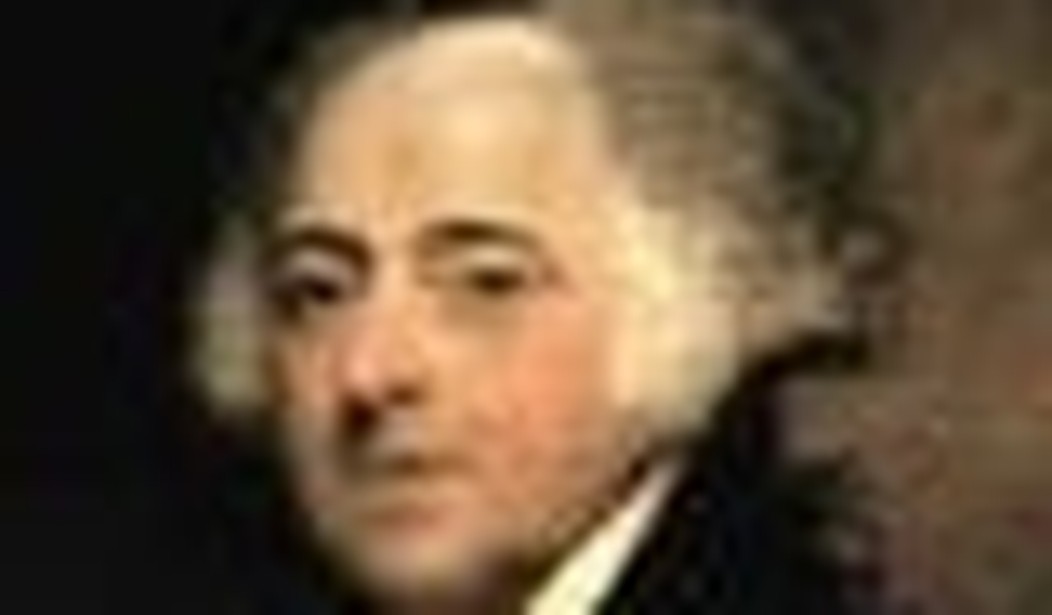America is almost always described as a democracy in school textbooks, educational programs, and news outlets of every ideological stripe. Likewise, when talking of America, politicians from both sides of the aisle frequently mention “our democracy,” by which they mean American democracy. President George W. Bush did it while reauthorizing the Voting Rights Act in 2006, House Speaker Nancy Pelosi (D-CA) did it during her Democratic National Convention speech in August 2008, and President Barack Obama did it in a pre-inaugural speech on January 19, 2009.
Yet America is a republic, not a democracy. Our Founding Fathers instituted a form of government guided by the rule of law rather than the desires of a majority of voters. They understood that a democracy is always in flux and given to “mob rule,” while a republic is fixed and stable, resting on “the Laws of Nature and of Nature’s God.” Because of the uncertainty of democracy, Benjamin Rush — a signer of the Declaration of Independence — wrote: “A simple democracy is one of the greatest of evils.”
The “evils” Rush saw in democracy are evident when we compare the basis for rights in a democracy with the basis for rights in a republic. In a democracy, rights ultimately flow from the majority, and every right — from keeping and bearing arms to possessing private property — is recallable if the party in the majority so decides. In the constitutional republic that our Founders intended America to be, rights are seen as coming from God and because of this, are unassailable by government (regardless of which party is in the majority). In the Declaration of Independence these unassailable rights were described as “unalienable” and were clearly presented as rights over which the government has no say.
While many of the references to America as a democracy are harmless, being made out of ignorance by people who are just repeating what they were told in grade school or on the evening news, some of the references betray a desire to change the very fabric of the nation. In other words, a great many of the references to democracy in America represent a clear intent to move America further away from the rule of law and closer to the rule of the majority.
Historically, the Democratic Party has been home to revolutionaries who refer to America as a democracy in order to move the country toward a point where majority rules, a point where the Constitution no longer stands in the way of their agenda. These revolutionaries, such as the people who filled the ranks of the Students for a Democratic Society (SDS) during the 1960s and who comprise groups like Movement for a Democratic Society (MDS) and Democracy For America (DFA) today, gather knowledge on how to use democracy to undercut the rule of law from the writings of men like Vladimir Lenin.
In pushing for the Bolshevik Revolution of the early 20th century, Lenin used democracy to weaken the Russian government and to simultaneously stir up class warfare to irreversible levels. He pleaded first for democracy, then a broadened democracy, and finally a democracy that favored the downtrodden. Relying heavily on the tactic of shaming one’s opponents into submission, Lenin praised the universal aspects of democracy only to criticize them as insufficient once they were achieved: “It is sheer mockery of the working and exploited people to speak of pure democracy, of democracy in general, of equality, freedom and universal rights when the workers and all working people are ill-fed, ill-clad, ruined and worn out.”
In Lenin’s words and historical example we see that those who use democracy to achieve their ends are necessarily insatiable in their push for change and their appetite for power. (Sound familiar?) They are would-be tyrants who pit one group of citizens against another, and essentially destroy the country in order to remake it.
Such men prove that democracy is transitory — it is a tool that allows revolutionaries and despots to transform nations according to their own wishes. And because it is transitory, it is temporal. This is clear if we consider that former democratic countries like Cuba, China, North Korea, and North Vietnam are no longer democratic (or are democratic in name only).
That our Founding Fathers were well aware of the temporality of democracy was evident in the words of America’s second president, John Adams, who said: “Democracy never lasts long. It soon wastes, exhausts, and murders itself. There never was a democracy yet that did not commit suicide.”
Our Founders saw the dangers that democracy posed for our great experiment in freedom and risked “[their] Lives, [their] Fortunes, and [their] sacred Honor” to create a republic instead. It is to honor them and preserve our own liberty that we don’t just pledge allegiance to the flag of the United States, but also to “the republic for which it stands.”








Join the conversation as a VIP Member